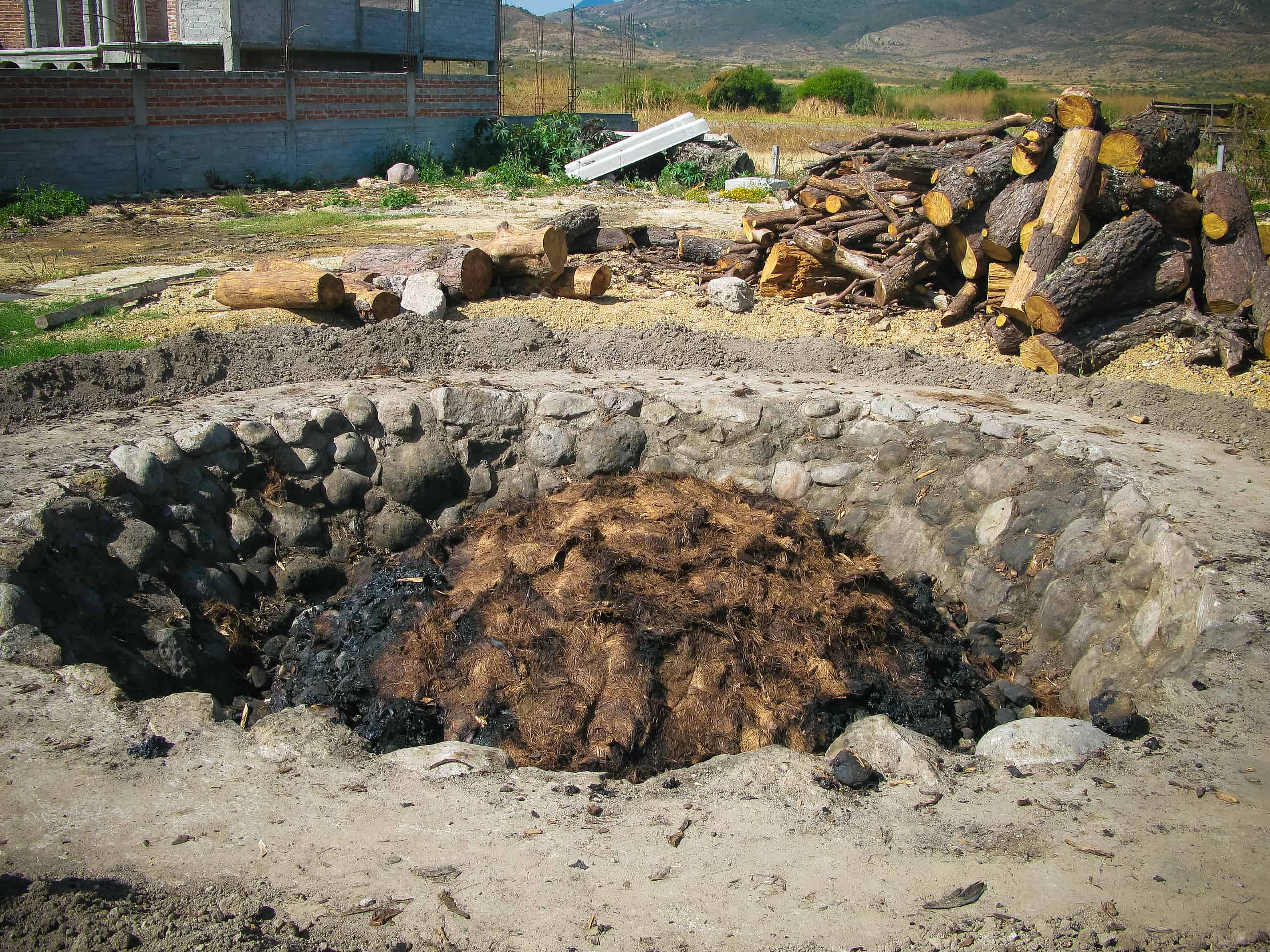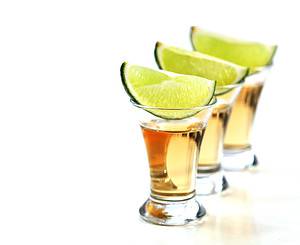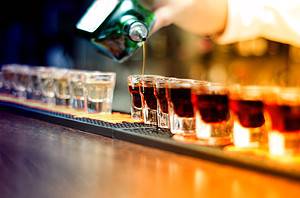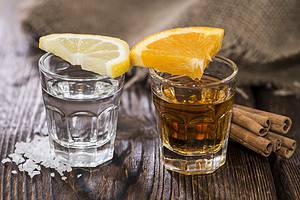Tequila is a beloved spirit with a rich history and cultural significance. However, for those who don’t consume it regularly, it’s common to wonder whether tequila goes bad or not. The answer to this question is not as straightforward as one might think.
While tequila doesn’t necessarily go bad in the traditional sense, it can lose its flavor and quality over time. This can be due to a variety of factors, including exposure to light, air, and temperature fluctuations. In order to ensure that your tequila stays fresh and tasty, it’s important to store it properly and consume it within a reasonable amount of time.

Table of Contents
Understanding Tequila
Origin from Blue Agave Plant
Tequila is a distilled spirit that is made from the blue agave plant, which is primarily grown in the Jalisco state of Mexico. The plant is harvested, and its leaves are removed to reveal the core, also known as the piña. The piñas are then roasted, mashed, and fermented to create the tequila that we know and love.
The blue agave plant takes around 8 to 12 years to mature, and the plant’s age and location can affect its flavor and quality. Tequila made from blue agave plants that are grown in the highlands of Jalisco tends to have a sweeter and fruitier taste, while those grown in the lowlands have a more earthy and herbaceous flavor.
Distilled Spirit: Hard Liquor
It is classified as a hard liquor, which means that it has a higher alcohol content than beer or wine. It must be distilled from at least 51% blue agave plant to be considered tequila, while the remaining 49% can be made up of other sugars. It is typically distilled twice, but some premium tequilas may be distilled up to three times.
The aging process also affects the flavor. Blanco or silver, is unaged and has a clear color, and it tends to have a stronger agave flavor. Reposado is aged for at least two months but less than a year, and it has a slightly smoother taste. Añejo tequila is aged for at least one year but less than three years, and it has a more complex and mellow flavor. Extra Añejo is aged for at least three years, and it has a rich and smooth taste.
It can be enjoyed on its own or used as an ingredient in cocktails, such as margaritas and palomas. It is important to note that tequila should be consumed in moderation, as excessive consumption can lead to health problems.
Does Tequila Go Bad?
Tequila is a popular alcoholic drink that is made from the blue agave plant. It is commonly used in cocktails and enjoyed straight. However, many people wonder if it goes bad and if it has an expiration date.
Indefinite Shelf Life
Tequila does not have an expiration date. It has an indefinite shelf life, which means it can be stored for a long time without going bad. As long as it is stored properly, it will not spoil or become unsafe to drink.
The reason for this is that it has a high alcohol content, which acts as a preservative. The alcohol in tequila kills bacteria and other microorganisms that can cause spoilage.
Oxidation Process
Although tequila does not go bad, it can lose its flavor and quality over time. This is due to the oxidation process, which occurs when it is exposed to air. Oxidation causes it to lose its aroma and flavor.
To prevent oxidation, it is important to store tequila in a cool, dark place. It should be stored in a sealed bottle to prevent air from getting in. Once the bottle is opened, then it should be consumed within a reasonable amount of time to maintain its quality.
In conclusion, it does not go bad and has an indefinite shelf life. However, it can lose its flavor and quality over time due to oxidation. Proper storage is key to maintaining the quality.
Factors Affecting Tequila’s Quality
Aging Process
The aging process is crucial in the production of tequila, and it affects the quality of the final product. It can be aged in oak barrels, and the longer it is aged, the more complex its flavor becomes. However, if it is over-aged, it can lose its flavor and become too woody.
Improper Storage
Tequila should be stored in a cool, dark place to maintain its quality. Exposure to heat and light can cause it to spoil and lose its flavor. Additionally, if the bottle is not sealed properly, air can get in and oxidize it, causing it to taste stale.
Direct Sunlight
Direct sunlight can cause the tequila to spoil and lose its flavor. The UV rays from the sun can break down the compounds in the tequila, altering its taste and aroma. Therefore, it is important to store tequila in a place where it is not exposed to direct sunlight.
Temperature
The temperature at which tequila is stored can affect its quality. It should be stored at room temperature, between 60-65 degrees Fahrenheit. If it is stored at a higher temperature, it can spoil and lose its flavor. On the other hand, if it is stored at a lower temperature, it can become cloudy and lose its clarity.
In conclusion, the quality of tequila can be affected by several factors, including the aging process, improper storage, direct sunlight, and temperature. It is important to store it in a cool, dark place at room temperature, away from direct sunlight, to maintain its quality.
Storing for Longevity
Tequila is a popular alcoholic beverage that can last for a long time if stored properly. To ensure that it remains fresh and maintains its quality, it is important to store it correctly. Here are some tips on how to store it for longevity.
Best Way to Store
The best way to store it is by keeping it in its original bottle. The bottle should be tightly sealed to prevent air from entering and affecting the taste of the tequila. It is also important to store the bottle upright to prevent the cork from drying out and allowing air to enter.
Ideal Storage Conditions
It should be stored in a cool, dark place. The ideal temperature for storing tequila is between 60-65°F (15-18°C). High temperatures can cause it to age too quickly and affect its flavor. It is also important to keep it away from direct sunlight and heat sources.
Avoiding Direct Light
Direct light can cause it to deteriorate quickly. It is best to store tequila in a dark place, such as a cabinet or pantry. If you must store it in a place with direct light, it is recommended to use a UV-resistant bottle or to wrap the bottle in a towel or cloth to protect it from the light.
In summary, to store tequila for longevity, keep it in its original bottle, store it upright in a cool and dark place, and avoid direct light. By following these tips, you can ensure that it remains fresh and maintains its quality for a long time.
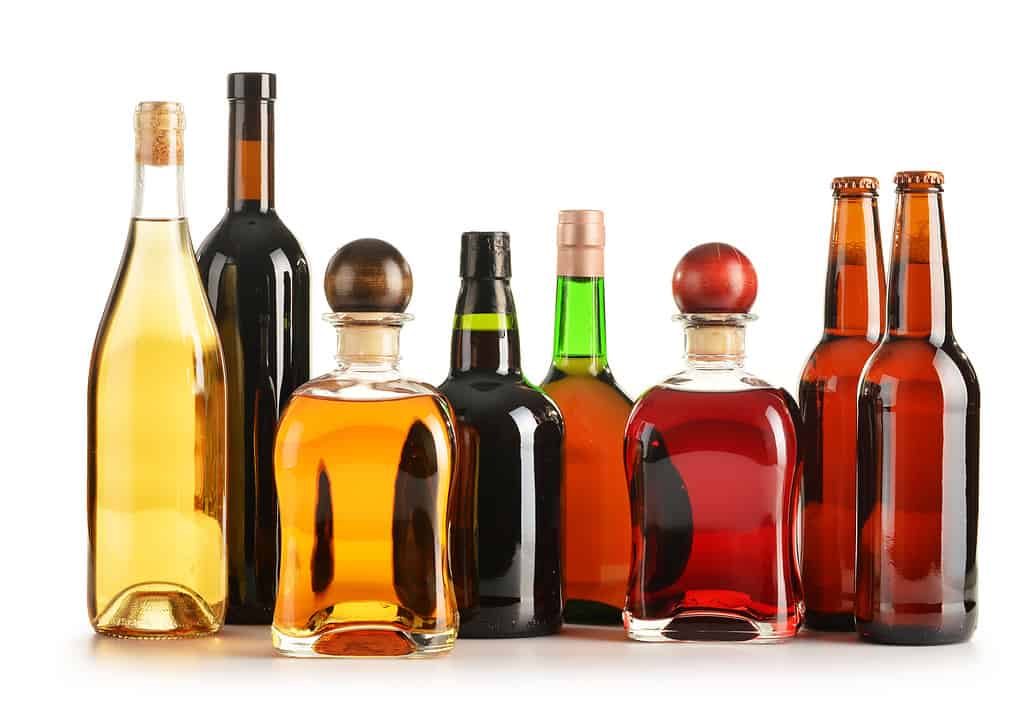
Effect of Bottle Size on Tequila’s Shelf Life
Smaller Bottle vs Larger Bottle
When it comes to the shelf life of tequila, the size of the bottle can have an impact. While tequila can last for a long time, it’s important to consider the size of the bottle when storing it.
Smaller Bottle
A smaller bottle of tequila may be more susceptible to oxidation due to the larger ratio of air to liquid. This can cause it to lose its flavor and aroma over time. Additionally, a smaller bottle may be more likely to be stored in less-than-ideal conditions, such as in direct sunlight or at high temperatures, which can also negatively impact the tequila’s shelf life.
Larger Bottle
A larger bottle may have a longer shelf life than a smaller bottle due to the smaller ratio of air to liquid. This can help to slow down the oxidation process and preserve the tequila’s flavor and aroma for a longer period of time. Additionally, a larger bottle may be more likely to be stored in ideal conditions, such as in a cool, dark place, which can also help to extend its shelf life.
Overall, it’s important to consider the size of the bottle when storing tequila for an extended period of time. While a larger bottle may have a longer shelf life, it’s still important to store it properly to ensure that it lasts as long as possible.
Identifying Old Tequila
It is a distilled spirit made from the blue agave plant. Like other spirits, it does not spoil or go bad in the traditional sense, but it can lose its quality over time. In this section, we will explore how to identify old tequila.
Peak Quality vs Prime Quality
Tequila is at its peak quality when it is first bottled. The flavors and aromas are fresh and vibrant, and the alcohol content is at its intended level. However, some tequilas are designed to age and develop more complex flavors over time. These tequilas are labeled as “prime quality” and are aged in oak barrels for a minimum of one year.
If you have a bottle of prime-quality tequila, it is important to note that it may not be at its best immediately after opening. Give it time to breathe and settle before consuming.
High Alcohol Content
Tequila typically has an alcohol content of 38-40%, but some varieties can be as high as 55%. Higher alcohol content can help preserve it, but it can also affect the flavor and aroma. If it has been stored in a warm or sunny location, the alcohol content may have evaporated, leaving it weaker and less flavorful.
When identifying old tequila, pay attention to the alcohol content. If it has been stored properly but still tastes weaker than expected, it may be past its prime.
In summary, it does not go bad, but it can lose its quality over time. To identify old tequila, look for changes in flavor, aroma, and alcohol content. If you have a bottle of prime quality, give it time to settle before consuming.
Tequila Storage: Opened vs Unopened Bottles
Tequila is a popular alcoholic beverage enjoyed by many people around the world. Whether you are a tequila connoisseur or a casual drinker, it is important to know how to store your tequila properly. Proper storage can help preserve the quality and taste of your tequila, ensuring that it remains safe to consume.
An Unopened Bottle
When it comes to storing an unopened bottle of tequila, the key is to keep it in a cool, dry area. This will help prevent any changes in temperature or humidity that could affect the quality. It is also important to keep the bottle away from direct sunlight, as UV rays can cause it to degrade over time.
Some tequila bottles come with a cork or a screw cap. If the bottle has a cork, it is important to store it upright to prevent the cork from drying out and allowing air to enter the bottle. If the bottle has a screw cap, it can be stored upright or on its side.
An Open Bottle
Once a bottle of tequila has been opened, it is important to consume it within a reasonable amount of time. This is because exposure to air can cause the tequila to oxidize, which can affect its flavor and quality. To prevent this from happening, it is recommended to store an open bottle of tequila in a cool, dry area away from direct sunlight.
It is also important to keep the bottle tightly sealed when not in use. This can be done by replacing the cork or screw cap securely after each use. If possible, it is also recommended to transfer the tequila to a smaller bottle with a tight-fitting cap to reduce the amount of air in the bottle.
In summary, storing tequila properly is important to preserve its quality and taste. Whether it is an unopened or open bottle of tequila, it should be kept in a cool, dry area away from direct sunlight. By following these guidelines, you can ensure that your tequila remains safe to consume and enjoyable to drink.
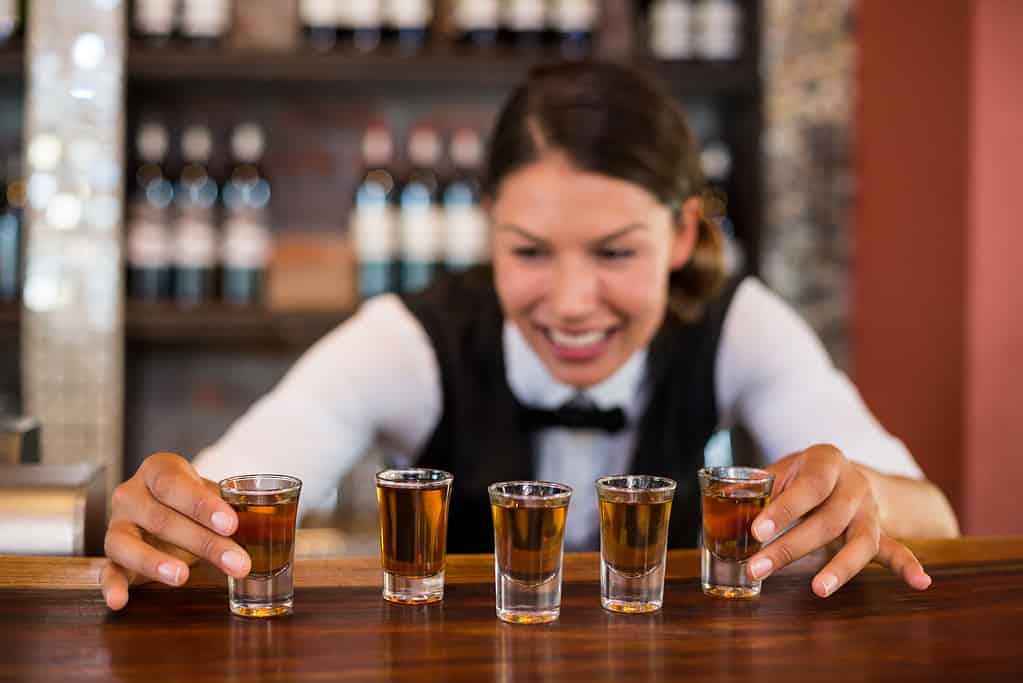
Conclusion: Is It a Good Idea to Keep Old Tequila?
After considering the various factors that affect the quality and safety, it is clear that keeping old tequila is not a good idea.
Firstly, it does not improve with age like other spirits, such as whiskey or wine. In fact, it can deteriorate over time due to exposure to light, heat, and air. This can cause the flavor and aroma to become muted or unpleasant and may even result in the formation of harmful compounds.
Secondly, unlike wine, tequila does not have a vintage year or a best-before date. This makes it difficult to determine how long a bottle has been stored and whether it is still safe to consume.
Additionally, tequila is a distilled spirit with a high alcohol content, which means it can last for a long time without going bad. However, this does not mean that it will taste good or be safe to drink after several years of storage.
Overall, it is recommended to consume tequila within a year or two of purchase and to store it in a cool, dark place away from direct sunlight and heat sources. This will help to ensure that the tequila retains its quality and flavor for as long as possible.
Frequently Asked Questions
How long does tequila last after opening?
Tequila can last for a long time after opening, but its quality may deteriorate over time. An opened bottle of tequila can last for several months to several years, depending on how it is stored and the type of tequila.
Can it go bad?
Tequila does not spoil or become harmful to drink, but its taste may change over time. The flavor and aroma of tequila can be affected by exposure to air, heat, and light, which can cause it to lose its freshness and develop off-flavors.
What are the signs that tequila has gone bad?
The signs that it has gone bad include changes in color, cloudiness, and an off odor or taste. If it smells or tastes sour, musty, or rancid, it may have gone bad and should not be consumed.
Does tequila have an expiration date?
Tequila does not have an expiration date, but it may have a “best before” or “bottled on” date. These dates indicate the recommended time frame for consuming the tequila while it is still at its peak quality.
How should I store it to keep it fresh?
Tequila should be stored in a cool, dark place away from direct sunlight and heat sources. It should be tightly sealed to prevent air exposure, which can cause it to lose its freshness. Some tequilas may also benefit from being stored upright to prevent the cork from drying out.
Can I drink tequila that has been stored for a long time?
Tequila that has been stored for a long time may still be safe to drink, but its quality may have deteriorated. It is recommended to taste a small amount before consuming a larger portion to ensure that it still tastes good. If the tequila has gone bad, it should be discarded.

